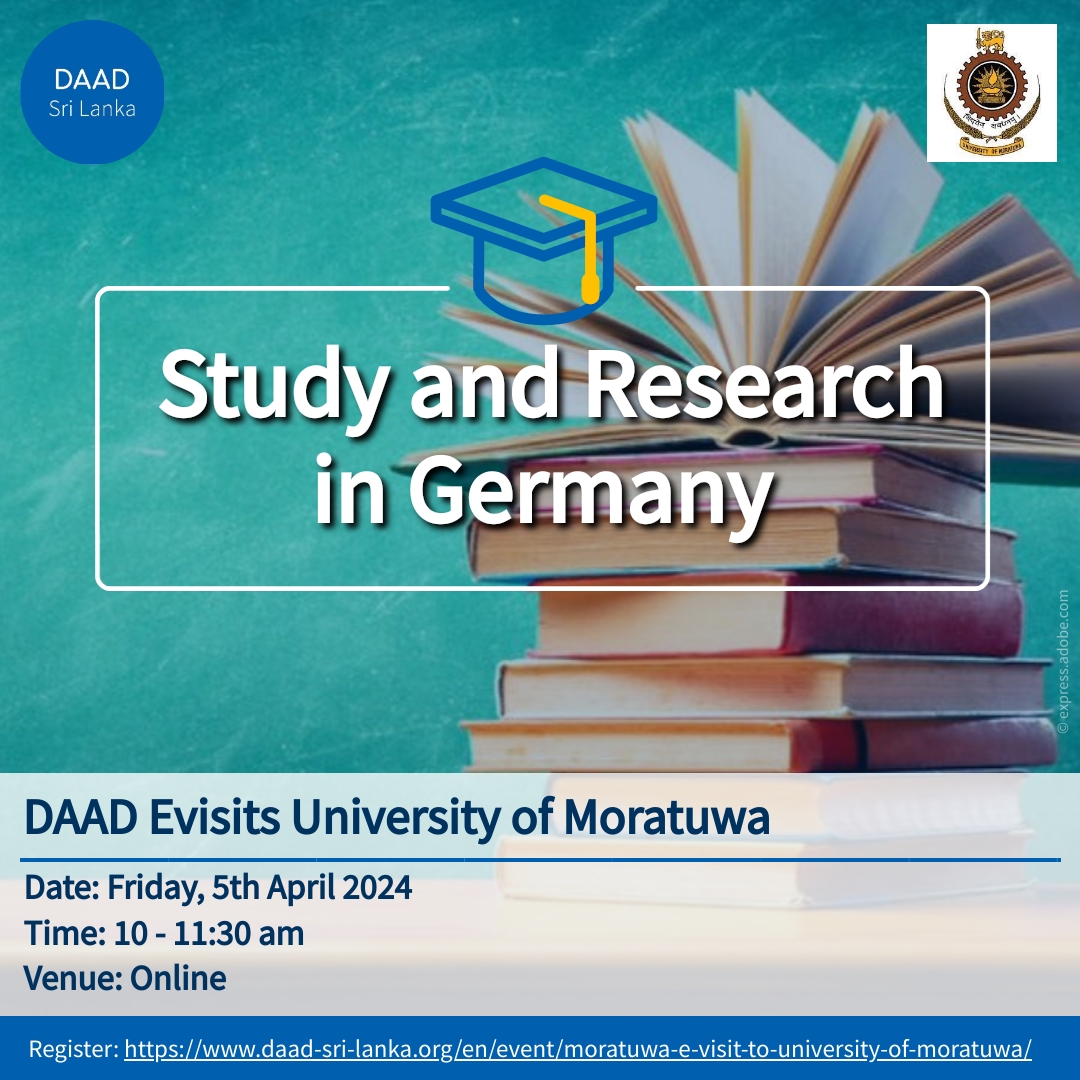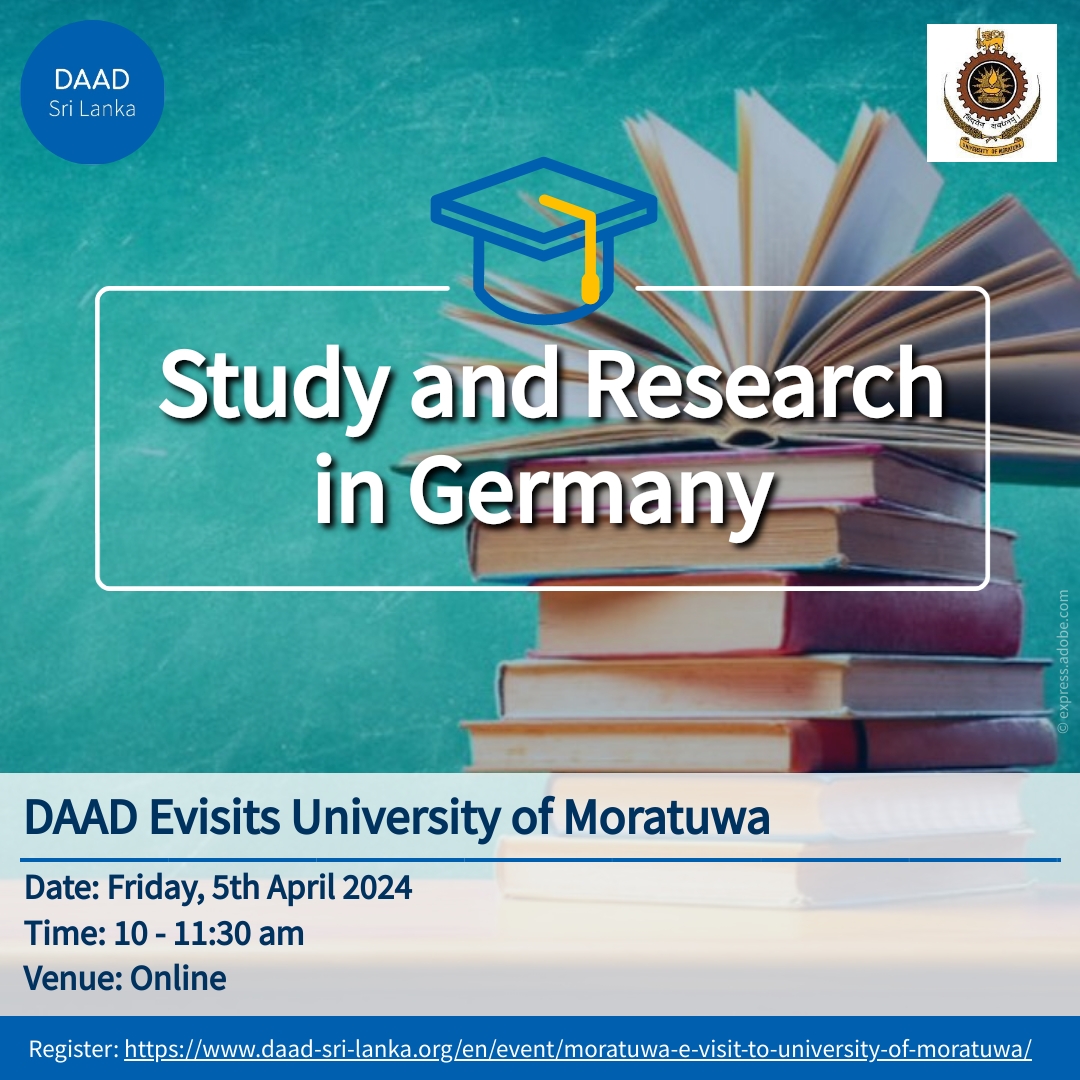
This online session will cover all the details regarding studying and researching in Germany, available scholarships and we will also allocate time for a Q & A session. The target group for this session are 2nd, 3rd or 4th year undergraduate students and postgraduate students. Post-doctoral opportunities will also be covered in brief.
Students are required to register through the link
https://www.daad-sri-lanka.org/en/event/moratuwa-e-visit-to-university-of-moratuwa/.
Once they register, they will get a registration confirmation email with the link to join (this session is conducted via MS Teams). I would like to suggest that you do the same and on the day once you log in as a participant I could give you presenter rights.
The agenda for the session is as follows:
- 10 minutes – Introductions
- 30 minutes – Presentation (studying and researching in Germany) by Nimaya Manudewa, DAAD Sri Lanka
- 20 minutes – Presentation (scholarships) by Nimaya Manudewa, DAAD Sri Lanka
- 30 minutes – Q & A
Ms. Nimaya Manudewa
Regional Officer, Information Point - Colombo
DAAD - German Academic Exchange Service
Email: info@daad-sri-lanka.org
Fixed: +94 11 231 43 64 / 67
Mobile: +94 71 162 5334
Online appointments: https://daad-sri-lanka.youcanbook.me/
Website: www.daad-sri-lanka.org
Upcoming web events: www.daad-sri-lanka.org/en/events/


